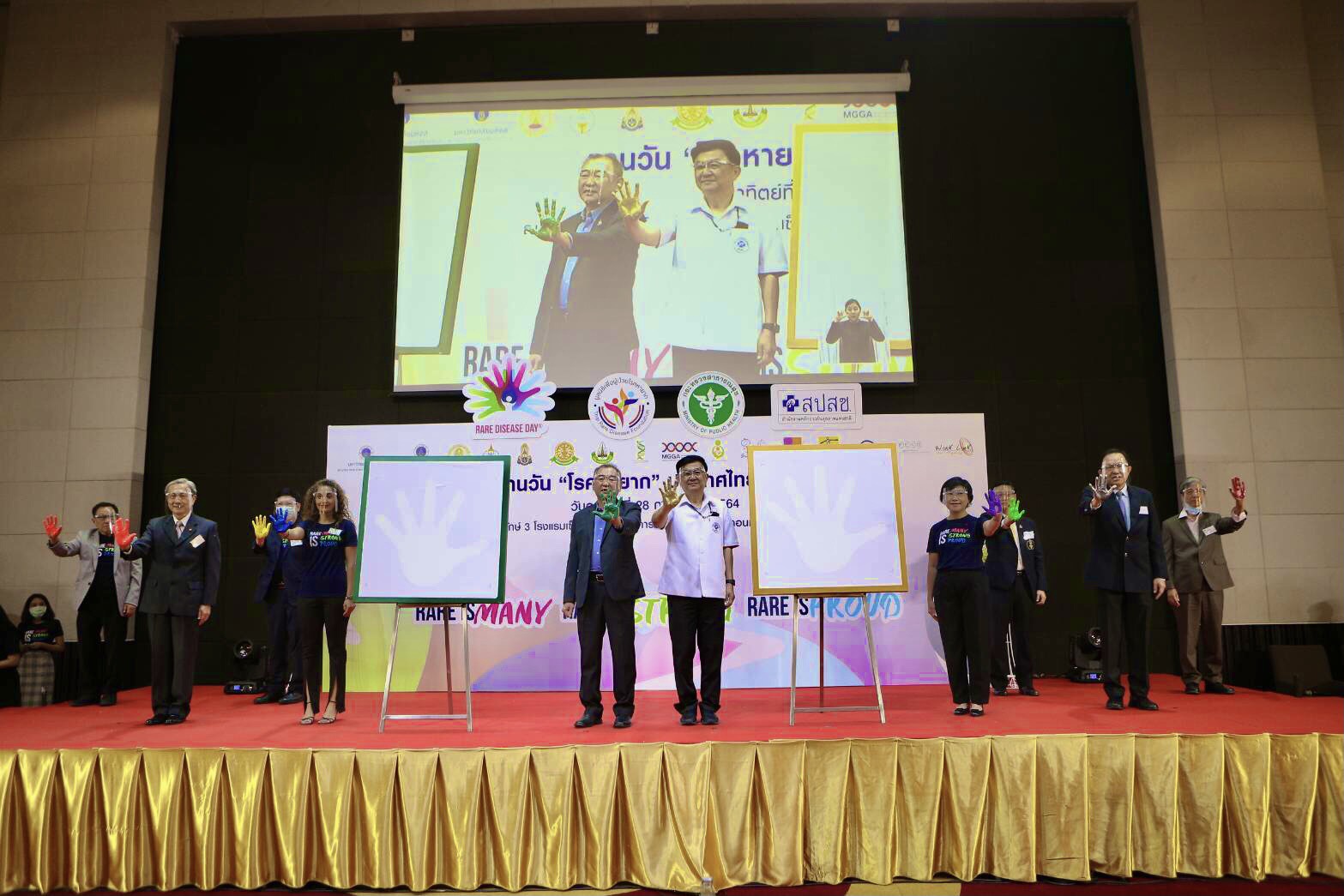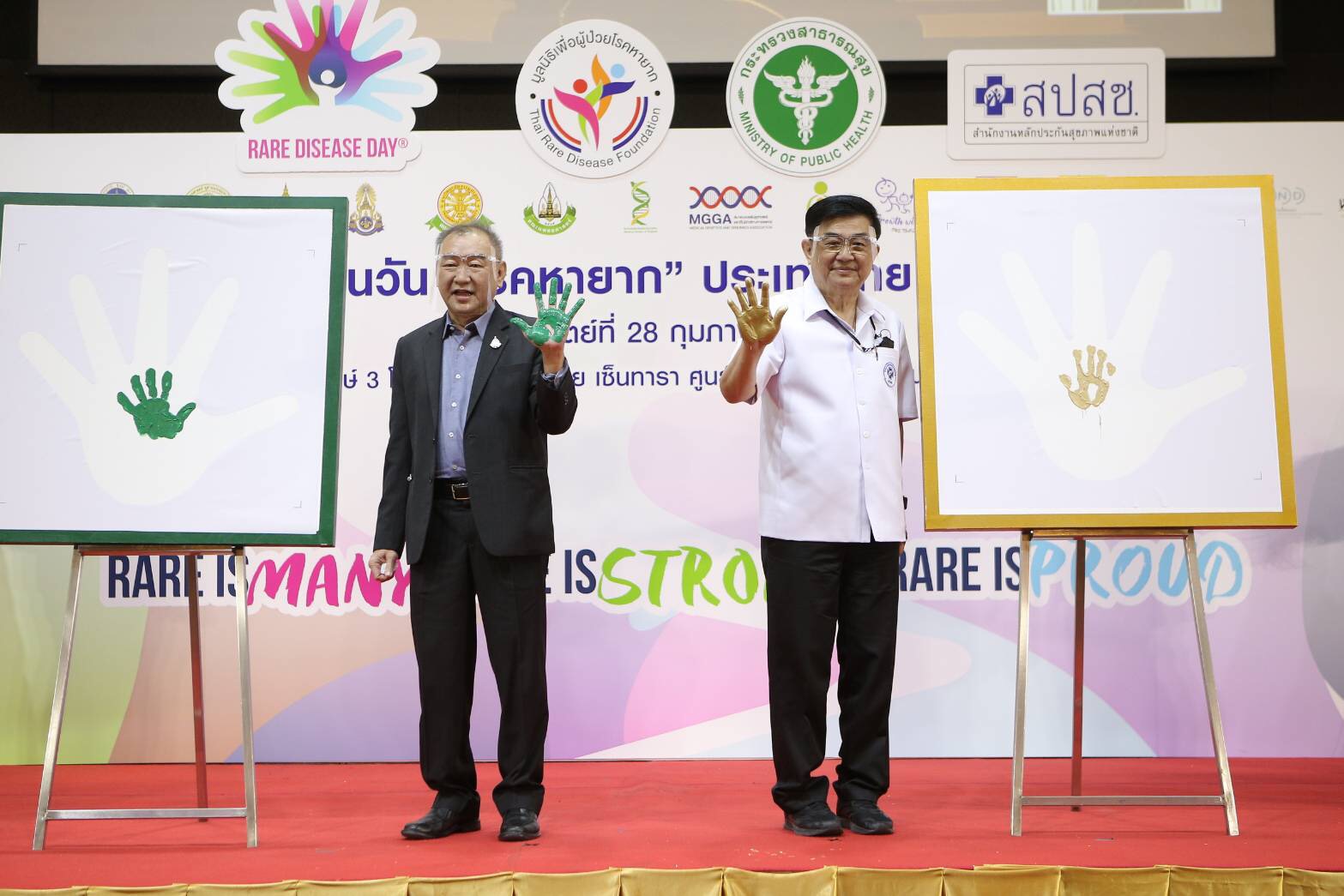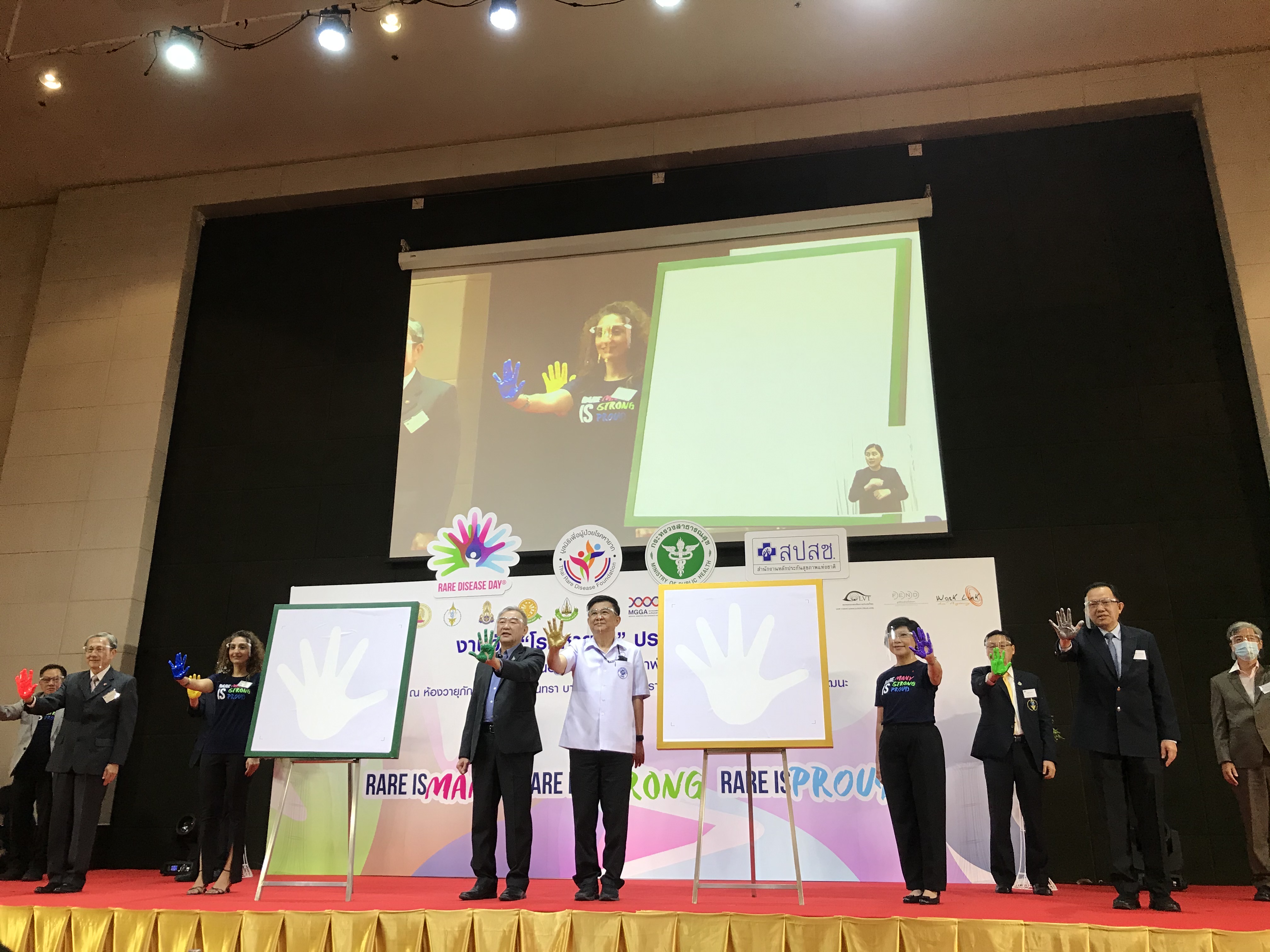
- Home
- DescriptionNews
24 Rare Diseases Added to UCS But Challenges Remain

24 rare diseases added to UCS. But challenges remain.
A rare disease is any disease found in a small percentage of the population. There is a lack of a market large enough to gain resources for researches and clinical trials, making patients have little access to affordable rare disease medication and treatment.
Despite the high-cost therapies, in 2020, National Health Security Office (NHSO) introduced the treatment for 24 rare diseases, known as inherited metabolic disorder or inborn errors of metabolism, into Universal Coverage Scheme (UCS)’s benefits package.
If one is diagnosed with one of those diseases, he or she will be transferred to one of seven tertiary hospitals with clinical genetics experts and advancing healthcare technologies.
The hospitals, mainly based in Bangkok, are Chulalongkorn Hospital, Thammasat Hospital, Siriraj Hospital, Ramathibodi Hospital, Phramongkutklao Hospital, Queen Sirikit National Institute of Child Health, and Khon Kean’s Srinagarind Hospital.
The move is made possible by the collaboration among players, including patient groups, clinicians, Public Health Ministry and NHSO. However, the challenge remains as there are more than 6,000 rare diseases, meaning many patients still cannot access treatment.

On 28 February, all players joined a seminar for the recognition of the Rare Disease Day at Centara Government Complex Hotel and Convention Centre in Chaeng Watthana, Nonthaburi. The event was jointly organized by NHSO, Public Health Ministry and Thai Rare Disease Foundation with several experts who play vital roles in pushing forward rare disease care at a policy level, including Prof. Duangrurdee Wattanasirichaigoon from Mahidol University's Faculty of Medicine Ramathibodi Hospital, also President of Medical Genetics Network, Genetic Society of Thailand, Prof. Kanya Suphapeetiporn from Chulalongkorn University's Faculty of Medicine, Asst.Prof. Achara Sathienkijkanchai and Prof. Cherdchai Nopmaneejumruslers from Mahidol University's Faculty of Medicine Siriraj Hospital and the Chairman of NHSO's working committee on rare disease care.
NHSO secretary-General Sakchai Kanjanawatana and Vice Minister for office of the Prime Minister Prapon Tangsrikertikul gave an opening speech during the event.
Gain public attention
Health expert estimate that 5% of the Thai population have one of the rare diseases, meaning that three million 0ut of more than 65 million Thai population have the diseases. Only around 20,000 of them receive treatment.
“Three million is many. Why aren't rare diseases matter for most people? One of the answer is, we don’t have a good strategy to raise this issue and gain public attention,” said Somchai Jitsuchon, an economic researcher at Thailand Development Research Institute Foundation.
He admitted that if his daughter does not have a rare disease, he might not care about it like many others.
“As an economist, I'm interested in the lost opportunity costs for Thailand due to the illness caused by rare diseases. We should have more studies on that, so the society will see the need to address this issue.”
Many technocrats show concern for the financial burden weighted on the government if it provides free treatment to rare disease patients. Currently, Civil Servant Medical Benefits Scheme fully covers rare disease care costs, while there is a gap for patients under UCS and Social Security Scheme.
Somchai believes that Thai society has the ability to handle the cost if it has an efficient tax collection system.

Driving policy with data
Data of rare diseases are scarce due to inadequate research and a small number of patients.
“When there is no data, patients miss opportunity, said Assit. Prof. Thipwimol Tim-Aroon, a clinical geneticist from Ramathibodi Hospital. “Data is essential for convincing policymakers to address rare diseases in healthcare policy. We need the registry system for rare disease patients.”
Empowering the patient groups are the first step to collect data as it creates a hub for data-sharing among patients, she said.
The success story is told with the hemophilia patient club, which gathered data and case studies from its networks and used them to convince the NHSO and Thai government to include hemophilia treatment into UCS benefits package.
Asst. Prof. Prapat Suriyaphol from Siriraj Hospital, Mahidol University said during the seminar that digital technology could improve rare disease data collection.
His team is adopting Fast Healthcare Interoperability Resources --- a standard describing data formats, elements and an application programming interface for exchanging electronic health records --- for the development of Thai patients’ dashboard containing data of their health status and medical records.
He hopes that the dashboard, expected to be launched by next year, would point out the need to address rare diseases at a policy level.

Patient empowerment
Patients’ voices have a large influence on Thai health policy and UCS. Genetic LSD Foundation is one of many patient groups that play an important role in pushing the government to provide rare disease mediation and treatment.
Established in 2009, the foundation focus on empowering patients by expanding their knowledge about Lysosomal Storage Diseases (LSDs), the complex and multi-systemic genetic disorders that affect various organs throughout the body. It raises funds and organizes activities in which patients can meet, comfort each other, and work together on pushing health policy.
The foundation’s president Boon Puttipongthanachote recalled his group's 2013 success in convincing the government to add Gaucher disease medication into the National List of Essential Medicines provided to patients under three healthcare schemes.
“We highlighted the fact that the drug was highly effective. Providing it to patients would help their families avoid bankruptcy,” said Boon, adding that his group is currently pushing for access to Pompe-disease medication.
Improve regulatory system
The regulatory system is an important component that drives the policy to develop rare disease innovations and products.
Prof. John CW Lim, Founding Executive Director of the Centre of Regulatory Excellence (CoRE) at Duke-National University of Singapore Medical School, raised three key challenges that regulators and governments face in Asia Pacific region.
First, insufficient regulatory knowledge and capacity, especially in smaller developing regulatory agencies. Second, fragmentation in the regulatory systems that industry faces when they try to bring new products to market. Finally, the lack of platforms for regulatory science and policy innovation.
CoRE was set up in 2014 with support from the Singaporean Ministry of Health to address the three challenges by using several approaches, including increasing institution regulatory talent, offering capacity building programs to regulatory authorities, and establishing networks to bring together stakeholders from across government industry, academia, and research.
“At the end of the day, regulation can never exist in a vacuum. The overall government regional and global systems all come into play,” said
Lim, adding that rare disease is being discussed in the regional frameworks, including the Asia-Pacific Economic Cooperation Action Plan for Rare Diseases which guides the coordination of different stakeholders across sectors.
“But ultimately, the patient voice and patient-centric models are not only important but will become increasingly important across all areas of health and social systems --- not only in promoting regulatory agility and regulatory innovation, but to make sure that the patient voice and the patient-centric model forms the basis and the heart of how we approach rare diseases going forward.”

